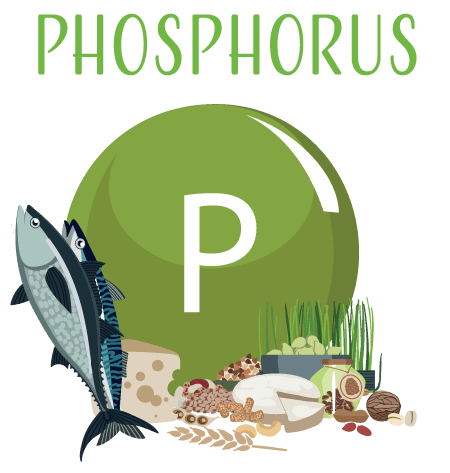Balance your body’s powerhouse with phosphorus.
Phosphorus is nearly always found in the body as phosphate, with most of it stored in the bones. In cells, it plays a role in energy production and metabolism, and is used to construct various substances like those used for energy and DNA. It is essential to keep a proper balance of magnesium, calcium, and phosphorus in the body, as too much or too little of any of these minerals can have negative effects.













